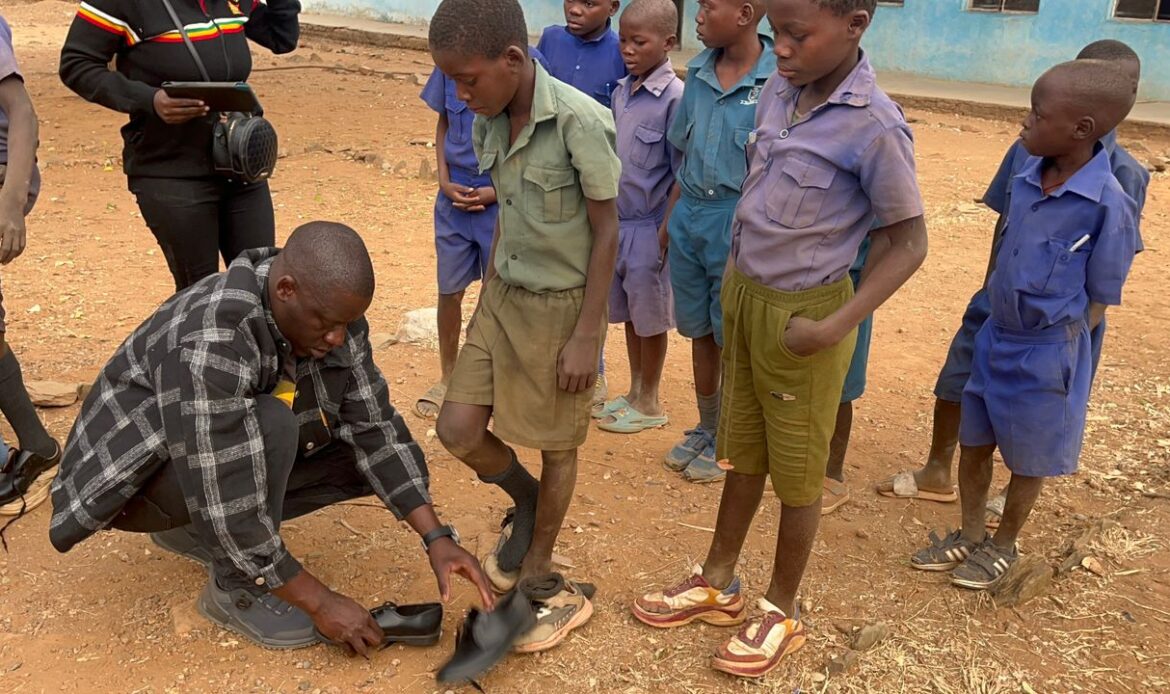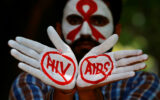
By Cimba Shepherd Nhamo
OPINION – Mashonaland West Youth Boss Tapiwa Masenda’s “Donate Shoes” initiative is more than just an act of giving footwear to schoolchildren — it is an act of restoring dignity, confidence, and hope. Watching him hand over pairs of shoes to vulnerable children in Hurungwe’s deep rural schools stirred emotions in me that I could not contain. I saw children who had been going to school barefooted, some in slippers, some in torn old shoes. The most touching moment was witnessing those who were wearing shoes for the very first time in their lives. The joy on their faces was beyond description — and I wept.
“Shoes are not just shoes. They are dignity, they are confidence, they are hope.”
I cried not only for those children, but also because I was taken back in time to my own childhood at Chizvinire Primary School in Chirumanzu. I vividly remembered walking long distances to school with my young brother, Pardon, both of us barefooted. Our parents worked hard, but their struggle was always for food and school fees. My mother, VaMamoyo, would walk 10 kilometers to the Mhende Irrigation Scheme with our neighbor, Mbuya vaShelter, to do piece jobs like harvesting wheat. She was often paid in wheat instead of money, which she later sold to buy food and cover part of our fees.
Still, shoes were a luxury beyond reach. We would walk 7 kilometers from our home in Mutumiri to school barefooted, ashamed and withdrawn. Even something as small as entering the Blair toilet at school was a humiliation — stepping into urine-soaked floors without shoes forced us to improvise with bricks. My confidence was crushed, my spirit weighed down by shame.
“Shame walks with you when you have no shoes. Dignity returns the day you wear them.”
Then came a day I will never forget. My father had earned some money after painting portraits of a Catholic bishop at Driefontein. Together with my mother, they went shopping at Hama Business Centre. That evening, they called us inside the house and asked us to try on new school uniforms — and new shoes. For the first time in my life, I had proper school shoes. The excitement kept me awake that whole night. I couldn’t wait to go to school, to walk proudly, to no longer feel like the odd one out.
Shoes restored my confidence. They gave me back my dignity. My grades improved. I became social, I blended in, and I excelled — finishing top of my class term after term. Later, when my aunt Theresa and uncle Archie Makore Shumba took us to Harare, we arrived as confident children ready to blend with others — not as the withdrawn boys who once carried the shame of bare feet.
“A pair of shoes can turn shame into pride, silence into confidence, and dreams into reality.”
This is why Masenda’s “Donate Shoes” initiative touched me so deeply. I understand what it means for a child’s spirit. Shoes are not just shoes. They represent dignity, confidence, inclusion, and a chance to focus on learning rather than shame. They are a quiet but powerful step toward shaping the future of Zimbabwe.
I recall one conversation I had with Ertbetry “Bhika” Mbayiwa, a close associate of Masenda. A man once asked what he could give Masenda in gratitude for a kindness. Bhika’s response was telling: “If you want to make Masenda happy, buy shoes for the vulnerable children and partner him in his Donate Shoes initiative.” That struck me. Masenda wasn’t asking for money, champagne, or luxury — only shoes for children who need them. That is the heart of a man who is driven by purpose, not ego.
“Masenda’s happiness is not in riches — it is in seeing children walk with dignity.”
Watching Masenda give shoes reminded me of my own story. It also inspired me to dream of returning to my rural roots one day — to clothe, feed, and empower children like the boy I once was. Because I know what a single pair of shoes can mean to a child’s confidence, education, and future.
If every ward in Zimbabwe had just one or two people committed to donating shoes to schoolchildren, imagine the transformation. The dream of “leaving no one and no place behind” would no longer be a slogan — it would be lived reality. Building an upper-middle-income economy by 2030 is not just about policies; it is about individuals and communities lifting up the vulnerable, one child at a time.
Tapiwa Masenda’s “Donate Shoes” initiative reminded me of my journey, healed an old wound in my heart, and gave me hope for the future. Sometimes, dignity begins with something as simple as a pair of shoes.
“Sometimes, the journey to a child’s future begins with the gift of shoes.”







